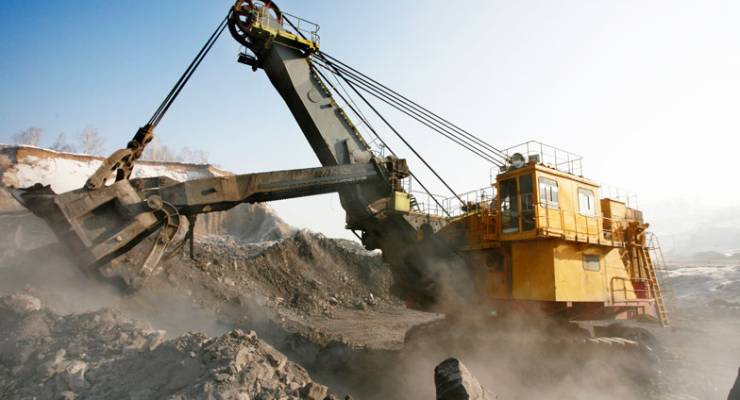
In the climate of the current trade war, Nationals Senator Matt Canavan’s call for Australia to put a levy on iron ore exports to China is strikingly mistimed. The government wants the trade war to cool down, not escalate.
If there was an award for best own goal in trade negotiations, Canavan’s proposal would be a frontrunner.
Yes, China depends on high quality Australian iron ore, mainly from the Pilbara, as the raw material for its massive steel industry.
But iron ore is a commodity. History tells us that with any commodity, if a producer increases prices other producers emerge or substitutes are found.
Australia found out about substitutes when we imagined — incorrectly — that our wool was of such high quality it could not be replaced. Our floor price (a government-backed, industry-run minimum price) was set too high. Over time cotton and synthetics took over much of the garment industry and the market for Australian wool collapsed.
Alternative iron ore supply won’t come online immediately — particularly not at Australia’s high grade and low cost — but over time Canavan’s plan would slash Australia’s market share in China.
A higher price would increase the incentive for Brazil to overcome its internal problems (including out-of-control COVID-19 infections) and ramp up production.
It would encourage China to invest more in west Africa, bringing on line the vast deposits of high quality ore it has identified there, and investing more in exploration.
Smaller producers in other countries would also be encouraged into the Chinese market.
Moreover, steel is not irreplaceable. In many applications there are substitutes, including aluminium and even bamboo.
Mind you, this might be a good thing for the globe. Steel production is a heavy carbon emissions generator, contributing to global warming. A great alternative to steel in building is sustainably grown wood — not only reducing emissions at source, but locking up carbon in the building.
China’s official English-language publication has suggested one of its reasons for cutting back on coal imports is emissions reduction. It could use the same logic in relation to iron ore destined for use in steel.
China would face minimal negative consequences from the proposed levy — at most it would be a short-term inconvenience. If there were problems meeting domestic demand it could simply export less — it is the world’s largest steel exporter, including as a major supplier to Australia.
At some cost China could even use its own lower grade ore, of which it has plenty. Cost to producers is not as big an issue in China as it would be here — an authoritarian one-party state can instruct companies to wear it.
China has overproduced steel in recent years, to the extent it has been accused of dumping its excess in its export markets. It has in the past had to close plants. More expensive Australian iron ore, ironically, could help Chinese administrators with further industry restructuring.
Chinese bureaucrats may well have pressed the accelerator pedal on their contingency and diversification plans as soon as they read the Canavan plan, in the belief it reflected Australian government policy.
That’s the problem with a thought bubble — countries like China, where a statement from a parliamentarian almost always reflects official policy, are more prone to take it seriously and act on it.
When it comes to iron ore, we depend on China far more than it does on us.
Our economic dependence on China is a strategic concern because it makes us more vulnerable to pressure and less able to pursue our interests independently.
Addressing this is, however, a long-term and difficult task.
Diversifying export markets is easier said than done. It takes time, and as China grows to become the world’s largest economy we would be foolish to turn our back on it. A former Australian ambassador to China, Geoff Raby, calls talk about diversification wishful thinking.
A more important priority is to develop sustainable industries here, something governments can support with investments in education, training, transport, planning and communications infrastructure.
That’s much more complicated than slapping a levy on iron ore exports but it would be more likely to help our national interests in the long run.








Krupp and Norway Steel are also progressing with the use of hydrogen in their blast furnaces in place of coke (from metallurgical coal). Currently the hydrogen comes from fossil fuel(gas) feedstock to form synthesis gas (CO and H2) but the electrolysis of water appears the most logical eventual source given cheap renewable energy
Canavan? Learned all the politics he needed from Cousin Jethro, as a staffer (not ‘one of those’ though).
So no resource rent tax but an export tax to China? Genius level thinking Canavan. Are we sure he’s eligible to be a member of Parliament?
we would be better off outsourcing the quarrying of the iron to China and agreeing on $30/tonne our way..
Blimey, these coal dinosaurs and LNP masqueraidng as libertarians, unsurprisingly, seem to be suggesting a national socialist economy and demanding an export tariff on their own exports?
Once China has the Simandou mine up and running they will not need our ore. As the biggest stakeholder in the mine, it will be interesting to see how Rio play the market.
Getting Simandou up and running may be a lesson for China (and Rio) in the problems of modern neo-colonialism.